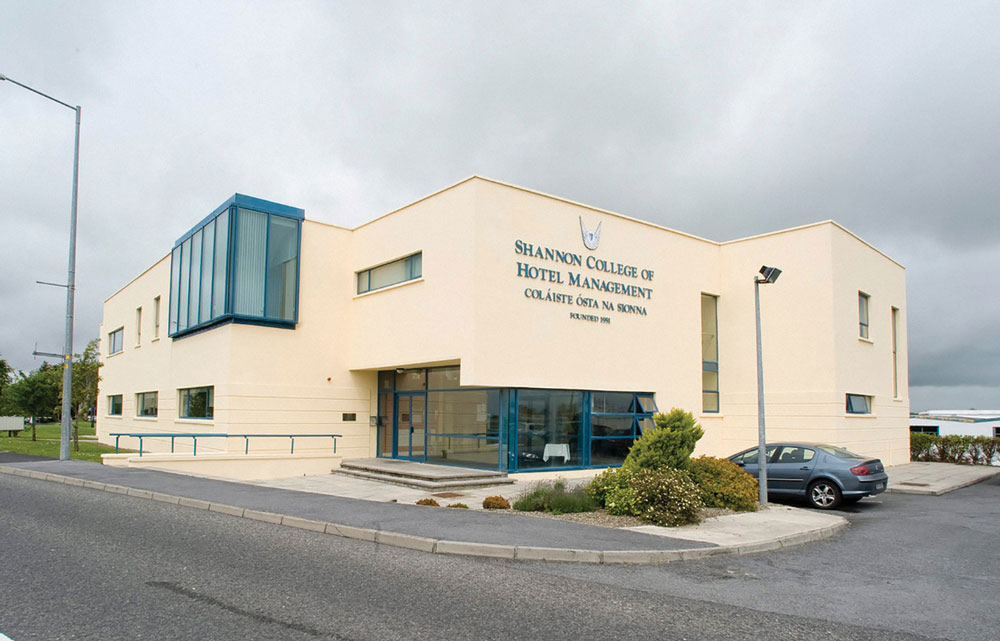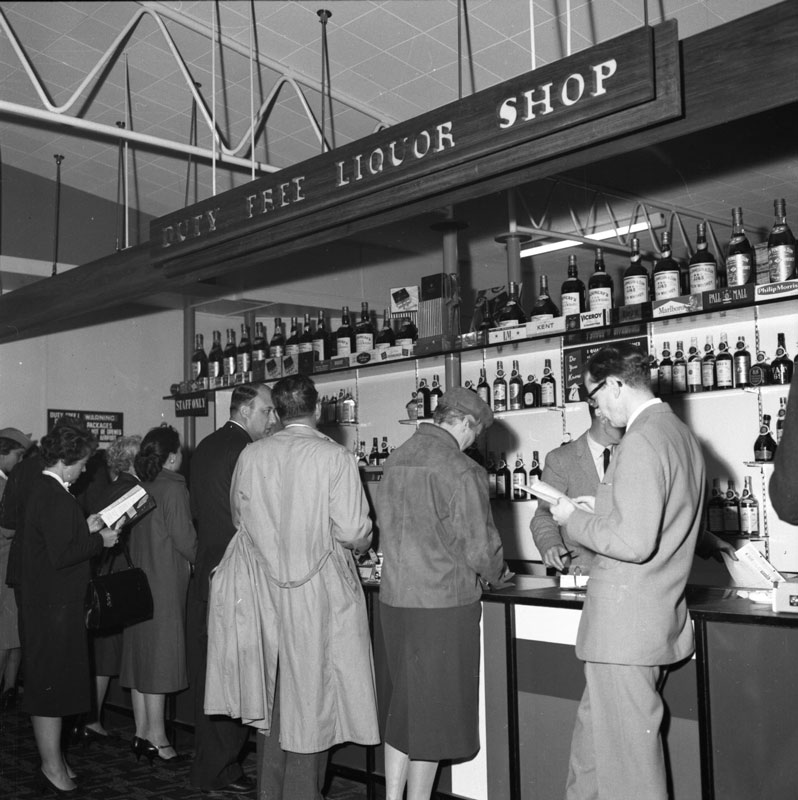Brendan O’Regan is my Irish hero, he didn’t die for Ireland he lived for Ireland. Everything he did in life was for the betterment of people and not for himself.
He:
- Invented and opened the first airport duty-free shop in the world
- Created and opened the first Duty-Free Industrial Zone
- Oversaw the creation of Irish Coffee
- Founded the first Hotel Management College in Europe
- Built the first new town in Ireland since the foundation of the State
- Created the medieval banquets in Bunratty Castle and other tourist attractions to make the Shannon region a tourist destination
- Inspired and drove Irish tourism growth as founding director of Bord Fáilte and later as chairman for sixteen years
- Founded several organisations dedicated to promoting peace on the island of Ireland.
I had first encountered Brendan O’Regan when I was a young student at the Shannon Hotel College. There I saw his leadership, his interaction with management and staff at all levels and the loyalty he generated and the new ideas he implemented, many of which were staff suggestions. He had a suggestion box in Shannon in the Sales and Catering department and took the suggestions seriously. They became a source of a lot of his ideas and any staff member who had put in a suggestion that was accepted would get a prize of maybe twenty pounds. In addition, when an idea was implemented Brendan always gave credit to the staff member who had suggested it.
I later worked as a middle-level manager in Bord Fáilte when Brendan served as chairman and continued to display these same attributes and expected similar from the management team led by Tim O’Driscoll as Director General (DG).
I got to know him better after that when I had left the Bord and was president of the Hotel and Catering Institute, the Irish Hospitality Institute now. Brendan was the guest speaker at a College of Fellows dinner we held in the Stephen’s Green Club and we asked him about accepting an honorary life fellowship from the Institute. His only question to us was: ‘how many jobs would that create?’And of course, it wasn’t going to create any jobs and he said that if it was going to create jobs, he would accept it, but if it wasn’t creating jobs, he wasn’t interested ‘in these honorary things’.
Flying Boats and Irish Coffee
Brendan’s early training was in quality hotels in Europe and the UK before he returned to Ireland. At an early age he managed the Falls Hotel in Ennistymon, his family’s Old Ground Hotel in Ennis and the Stephen’s Green Club in Dublin. Then he took over the catering services at the flying-boat base at Foynes and successfully launched and developed the sales and catering operation in the new Shannon Airport. During the war, and for some fifteen years thereafter, the Shannon Airport terminals at Foynes and then Rineanna were the main European arrival and departure points for transatlantic air travel. O’Regan faced the great challenge of meeting the needs of passengers after a sixteen-hour flight, a five-hour time change, and landing in water, not knowing whether they desired breakfast, lunch or dinner, hot coffee or a strong drink.
One day, O’Regan’s head chef, Joe Sheridan, came to him presenting his invention – the first Irish Coffee. Sheridan said to O’Regan “you are always talking about presentation and eye appeal, does this have it?” Sheridan subsequently left Shannon and introduced Irish Coffee to the United States at the Buena Vista bar and restaurant in San Francisco. In the early days in Shannon we were told never to call it “Gaelic Coffee” as such could be made with Scotch whisky.
Irish coffee is now served all over the world and has been a great promotional vehicle for Irish whiskey and a positive for Irish tourism.
Shannon College of Hotel Management
In 1951, Brendan O’Regan established the first hotel management college in Europe in two rooms in a wooden building at a bleak and windy Shannon Airport. He saw this a key cornerstone if Ireland was to create an international tourist industry.
In the fifties most hotels in Ireland were family-owned and family-run and their staff had little or no trained management. Hands-on learning was available only in the few hotels in Ireland with a credible traineeship or in a quality European hotel. Attendance at a hotel school in Europe was available to very few hotel families because of language and financial barriers.
The average size of Irish hotels was around twenty-five rooms. Rooms with bathrooms accounted for less than five percent. Brendan O’Regan knew that the tourist industry had the potential to make an economic and social impact and generate jobs particularly in areas where other industries did not go. To achieve such potential, hotels and attractions had to be improved and properly trained hotel management were necessary. Brendan persuaded Government and other bodies to support the establishment of an hotel management school in Shannon Airport. In the early years the sons and daughters of hoteliers who met the college entry requirements were given a preference as were applicants already working in hotels.
From his connections in Europe and in the Lausanne Hotel School he sought advice and assistance and the first director, Dr du Parcher came from Lausanne. He enticed Noel Duff, a Lausanne graduate to come to Shannon and join a fellow alumnus Alec Slefer and Chef Willie Ryan and other Shannon personnel to help set up the school.
The average class size was between fifteen and twenty students. It was a four-year course, two years in Shannon followed by a year on the continent the final year in the UK. Shannon is now a college of the National University of Ireland Galway (NUI Galway) with over 400 undergraduates, among whom overseas students account for around one third. It has maintained its original concept of industry placement and overseas professional internships before graduation. Shannon graduates can now progress to masters and doctorates.
Shannon graduates made an early positive impact on the Irish hotel industry and the tourism offering. They are sought out by international hotel chains for senior positions. One hundred percent are in management positions on graduation.
Brendan O’Regan’s training and education vision has paid dividends for Irish hotelkeeping and tourism.
World’s first Duty Free airport shop
It’s well known that Brendan set up the world’s first duty free airport shop in Shannon in 1951. What is less well known is that he also sold tax-free cars in Shannon to members of the American Forces based in Germany and Europe on their way through the airport on their way back to the US. Going home they were all allowed to import one car free of tax into the States and Brendan had them on sale in Shannon where members of the US Forces could buy them. There was a link with Chuck Feeney on that one, since that is what Chuck Feeney was doing originally in Shannon.
Bord Fáilte Eireann
In the nineteen-fifties Brendan O’Regan was a truly inspired selection to lead the Irish tourist industry with his appointment as chairman of Bord Fáilte. Brendan had travelled widely overseas, including study tours in Europe and the United States. Following the latter tour as part of the Marshall Aid Programme, he co-authored a very clear report on what was needed to attract international tourists to Ireland.
The response letter I received when I applied for a job in Bord Fáilte convinced me that I wanted to join the organisation. It was bereft of officialise, it was clear in its message, it had style in design and layout. It was in total contrast to correspondence from other official bodies. I was successful and enjoyed eleven productive years in the organisation
As an inaugural director of the Bord and a year before he was appointed Chairman, O’Regan had an input into the recruitment of Tim O’Driscoll, who was then Ireland’s ambassador to the Netherlands. O’Driscoll had been known to O’Regan as Principal Officer in the Aviation and Marine Division in the Department of Industry and Commerce and both O’Regan and O’Driscoll shared an international outlook and were drivers of high standards. They were thinkers and doers. They worked well together. They had some disagreements, including one serious one. However, the respect they had for each other ensured that this was quickly set to one side.
Brendan O’Regan as Chairman led the organisation in its positive policies, strategies and innovations.
Bord Fáilte had many functions and responsibilities in developing and marketing the tourist offering. O’Regan and his board laid down policy statements on the wide range of action areas to guide the executive. This helped secure a unity of purpose within the organisation and with outside bodies such as government departments, industry representatives, local authorities, sister agencies and a wide range of commercial interests.
The physical environment was an early concern to Brendan O’Regan. The Bord took several initiatives. The first draft of the 1963 Planning Act was initiated and prepared by the Bord. Later the Bord commissioned the first coastal study to identify shoreline issues to be addressed for the benefit of tourism. The Tidy Towns competition was launched in Brendan’s first year as Chairman which brought communities together and generated local commitment and pride in beautifying towns and village. It is still successful today more than sixty years later.
The Bord had statutory functions under the 1939 Tourist Traffic Act to register and grade hotels and other forms of accommodation with “Inspectors” appointed under the act. O’Regan saw an opportunity to use the process to improve hotels. A first step was to change the “Inspector” to a “Registration Officer” in the Act, and recruit qualified hotel managers to advise the operators on improvements to their properties and services, particularly where a downgrading or cancellation of registration was on the horizon. To emphasise the advisory role, the job title was later changed to “Advisor”.
While Shannon and other colleges were meeting the management needs for the accommodation sector, there was a shortage of trained and skilled personnel in all other areas. In 1963 Bord Fáilte set up CERT– the Council for Education, Recruitment and Training, which set training standards, developed curricula, operated training establishments, certified courses, and trained other trainers. It made a big impact on the numbers and quality of the hotel, catering and tourism workforce.
In the late 1960s we had a shortage of hotel accommodation. As part of the solution the town and country home and farm guest-house were introduced to Irish tourism. The standards set were high, the housewife was of paramount importance, the assessors were briefed to avoid approving the “Brighton landlady” types (apologies to Brighton landladies) They brought tourist spending to rural Ireland and small towns. They were highly successful and became very popular.
The Bord was held in high esteem by the diplomatic corps and Foreign Affairs. It was often consulted on arrangements for visits by overseas statesmen. Two examples were President Charles De Gaulle and President Walter Scheel of Germany. The Bord had to find suitable and secure accommodation for both involving exclusive use of the hotels. Both wound up in Cashel Village in Co. Galway. It could be called the “Presidents Village”.
Irish tourism owes a substantial debt to Brendan O’Regan. He leaves a record that is not surpassed by anybody in Ireland’s second biggest industry.
Author Jim Flannery was an early graduate of the Shannon College of Hotel Management and long-time tourism consultant.


